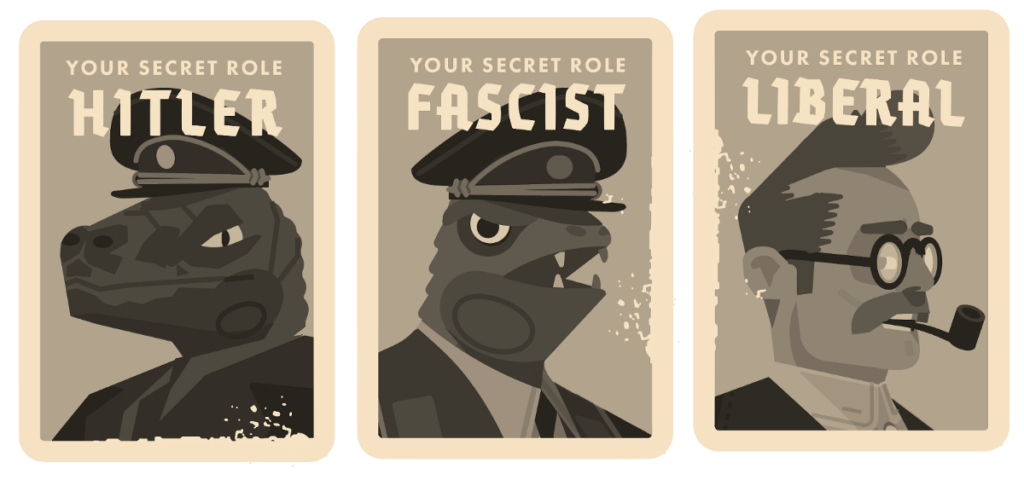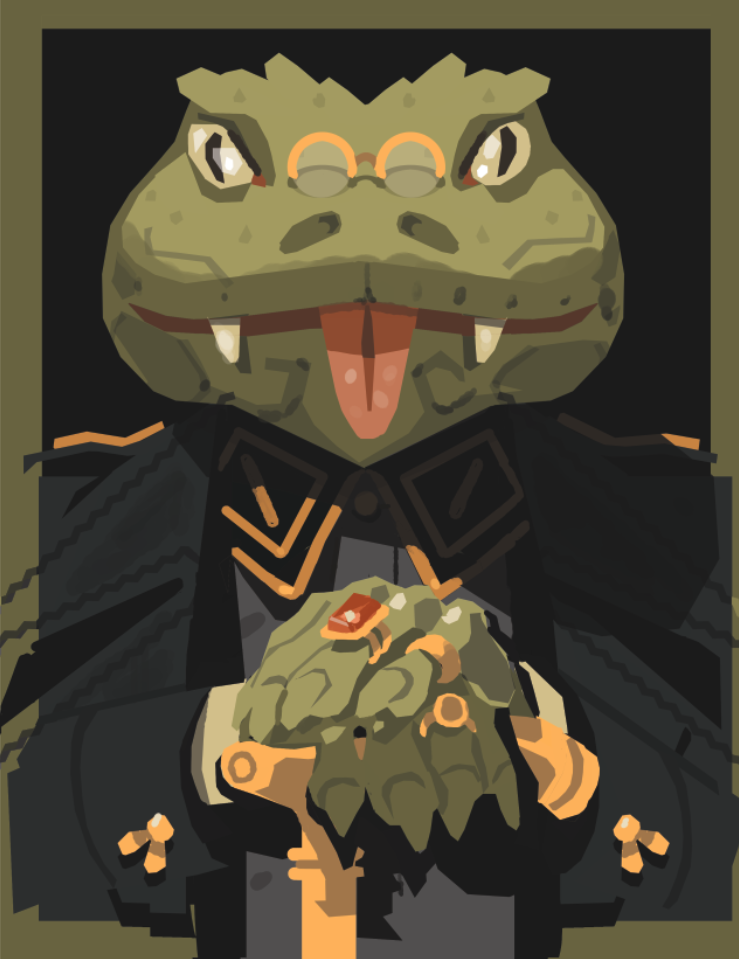Embedding Rhetoric In Design
“You want to play what?” is a common response to anyone who first brings up the idea of playing a game called Secret Hitler. It is the exact emotional affect that the creators of the game were going for as the game itself has little to do with actual World War II politics. So then why theme your game around such a heavy topic? Secret Hitler’s success rides on the fact that it is able to accomplish this edginess of people to say things that would be deemed socially irresponsible. Terms like “I am Hitler” hold a general comedic element to them as the person saying it is usually so clearly are not Hitler. Despite playing into this absurdity and capitalizing off its historical tragedy theming, Secret Hitler does try to broach the concept that they are both not supporting fascists and want to view the game in a tone of levity.
The intentionality of design can be best shown within the cards themselves and how they function. Every player is handed one at the start of a game and it either denotes them as being a Liberal, Fascist, or Secret Hitler—who of course is on the Fascist team. The mechanics of the game themselves have a procedural rhetoric of the Liberals being at the very least more truthful than the Fascists, for the Fascists have to lie the whole game while a Liberal player is expected to tell the truth. In other words, if you were to strip the entire theming of the game, then there still would most likely be a bad versus good guys dynamic as the mechanics of one side is an action that society deems morally wrong: lying. But the game is not stripped of theming, it has a theme it leans into heavily that supports the procedural rhetoric of the mechanics.
The card design of Secret Hitler intentionally designs the game such that the Liberals are all normal, pleasant looking people and the Fascists are predatory amphibians. This design choice is obviously playing on the common belief that powerful political figures are some sort of amphibian shapeshifters in disguise. Most commonly derived from the attributes of a snake, the concept of being an amphibian in human skin is a way to other humans that act in such a way that is so inhumane it cannot be believed that they are the same species as us. Secret Hitler deals with its politically charged theme in a way to convey that it does not believe Fascists to be human; thus, it can get away with its edgier theme by being so clearly in support of one side.

This raises the question of whether this truly absolves this game of its “click-bait”-esque title. Is it really okay to make games about such serious topics when the subject material is just used as a crutch? Secret Hitler functions as a well designed social deduction game, yet I always come back to the way it sparks questions of what games should and should not be about. Censorship over what mediums can cover a topic is a slippery slope as nearly all creative mediums can create compelling narratives, yet just because a game can be made around a certain subject matter does not mean it should if it is truly not gaining anything from the connection.
